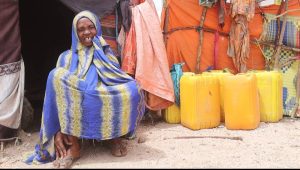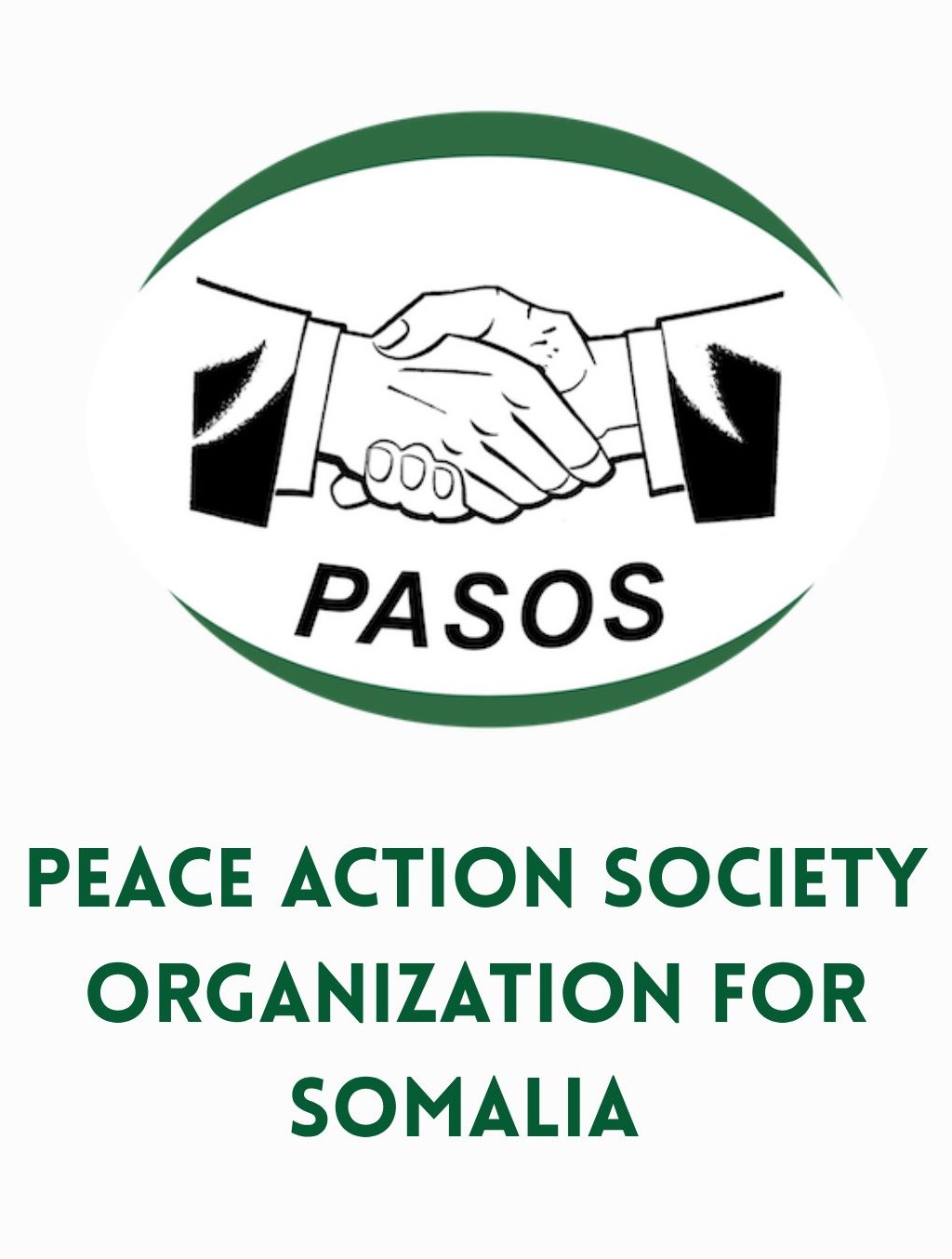Water brought us back to life
Water Brought Us Back to Life
A success story from Misare IDP, Burhakaba
Project: Somali Joint Response (SOMJR)
Donor: DRA (through World Vision International)
Implementing partner: Peace Action Society Organization for Somalia (PASOS)
Featured beneficiary: Kaltumo Bilane, displaced from Dhafaad to Misare IDP
In the heart of Somalia’s prolonged drought crisis, thousands of families have been forced to abandon their homes and livelihoods in search of water and survival. Among them is Kaltumo Bilane, a mother of four from Dhafaad village, 65 km from Burhakaba, whose family’s life was devastated by the loss of livestock, drying water points, and a growing inability to access safe drinking water. The absence of water not only threatened their health but also stripped them of dignity and hope, forcing them to make the difficult journey to Misar IDP camp in Burhakaba.
Through the Somali Joint Response (SOMJR) project, funded by the Dutch Relief Alliance (DRA) through World Vision International (WVI) and implemented locally by PASOS, Kaltumo and her family became direct beneficiaries of emergency water trucking services. For the first time in months, they could access safe water regularly, without walking long distances or paying high prices that were beyond their means. This intervention, combined with hygiene promotion, nutrition screening, and health outreach, did more than quench thirst; it restored health, reduced the burden on women and children, and rebuilt a sense of stability in Kaltumo’s household.
Her story illustrates the transformative power of humanitarian action. What may seem simple a truck delivering safe, tested water—became a lifeline that reversed illness, prevented further displacement, and offered hope to rebuild a life with dignity. This success story highlights not only the resilience of one family but also the critical role of coordinated, donor-supported interventions in saving lives and laying foundations for long-term recovery in drought-affected Somalia.
The crisis that pushed Kaltumo to move
Somalia continues to face one of the most severe and protracted droughts in recent history, with successive failed rainy seasons leaving millions of people without reliable access to food, water, and livelihoods. According to humanitarian assessments, more than 6.5 million Somalis were in urgent need of humanitarian assistance in 2025, with water scarcity ranking among the most critical and life-threatening needs.
Drought not only dries rivers and shallow wells but also destroys livestock the primary source of nutrition and income for pastoral families. It was within this harsh reality that Kaltumo Bilane, a mother of four, lived in Dhafaad village, located approximately 65 kilometers from Burhakaba town. Like many rural families, her household relied on livestock and traditional shallow wells for survival. But as the drought deepened, the family’s goats and cattle perished one after another, and the only water source in her community dried up completely.
With animals gone, crops failed, and water inaccessible, survival became impossible. The collapse of rural livelihoods led to mass displacement. Families like Kaltumo’s were forced to migrate to urban centers and IDP settlements, where humanitarian agencies provide life-saving support. The journey itself was perilous; women and children often walked long distances under extreme heat, carrying what little they could. By the time Kaltumo reached Misar IDP camp in Burhakaba, her family was weakened by thirst, hunger, and trauma from losing nearly everything they owned.
Through the project’s water trucking initiative, families like Kaltumo’s were prioritized to receive safe water daily. This intervention directly addressed one of the most urgent humanitarian needs, preventing disease, reducing the physical burden on women and children, and restoring dignity to families displaced by the drought.
The SOMJR intervention what PASOS delivered
Upon arrival at Misar IDP camp, Kaltumo and her children were immediately identified as highly vulnerable. Like many new arrivals, they had no access to clean and safe drinking water; PASOS swiftly stepped in with targeted emergency support.
The project prioritized water trucking services as one of the most critical life-saving interventions. Under this scheme, clean water was delivered daily to IDP settlements and vulnerable host communities. In Misar IDP alone, hundreds of households, including Kaltumo’s, received a consistent water supply that drastically reduced the risk of dehydration and waterborne illnesses such as diarrhea and cholera, which are prevalent during drought crises.
Each household was provided with a daily water allocation sufficient for drinking, cooking, and basic hygiene needs to ensure safety and hygiene.At a broader level, the water trucking intervention was designed not just as an emergency stopgap but as a bridge toward longer-term solutions. In parallel, the project initiated rehabilitation and construction of sustainable water systems, such as the water tank and kiosks in Howlwadaag village.
These initiatives aim to ensure that when families like Kaltumo’s return home or resettle, they will have access to more permanent, reliable water sources.
For Kaltumo, however, the immediate relief of daily water access at Misar IDP was life-changing. With water delivered directly to her settlement, she no longer had to walk long distances under the scorching sun in search of unsafe sources. Instead, she could focus on rebuilding her family’s life, caring for her children, and regaining a sense of stability after losing everything to drought.
The Impact on Kaltumo and Her Family
For Kaltumo Bilane, the support provided through the SOMJR Project was more than just water; it was the restoration of dignity, hope, and survival for her and her children. Before arriving at Misar IDP, she recalled walking for hours each day in search of water from contaminated ponds and shallow wells near Dhafaad. Often, she would return empty-handed or with water so unsafe that her children frequently fell sick with diarrhea and fevers. The death of her livestock, once her only livelihood, compounded the despair, leaving her family with no food, no income, and no safe water.
What changed for Kaltumo and her family immediate and measurable impacts
- Water security: The family went from purchasing limited water to receiving regular safe water. Their daily per-person water availability rose to a level approaching the humanitarian minimum (≈15 L/person/day) and allowed for drinking, basic cooking, and hygiene.
- Health outcomes: The children’s diarrheal episodes decreased. One child who had been listless regained appetite and energy within days after receiving rehydration and routine care at the outreach clinic.
- Time savings and protection: Kaltumo regained roughly 2 hours a day previously spent searching and purchasing water. Reduced trips at night lowered exposure to safety risks.
Dignity and normalcy: Restored capacity to bathe children, wash clothes, and prepare varied meals improved emotional well-being. Kaltumo reported feeling able to plan and hope again

The first time the truck arrived I was happy. I watched my children fill the jerrycan, and I cried a little because it felt like we had been given back something simple but huge life.” Kaltumo
“When mothers are not thirsty, they can think about food and school again. Water is the start of many things.” Female water committee member, Misare
Kaltumo consented to share her story


